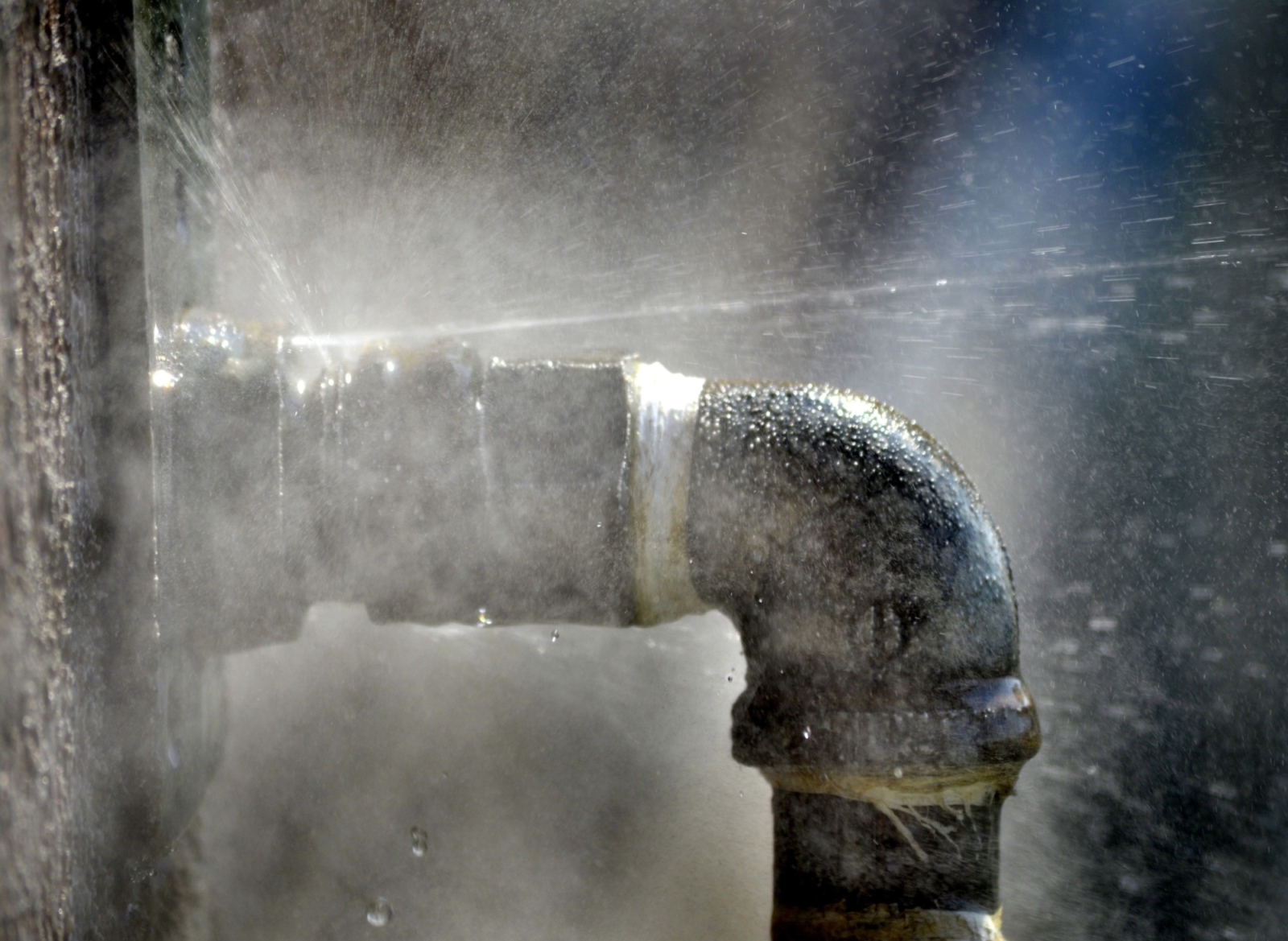What to Do and What Not to do if Your Water Pipes Freeze and Burst

A frozen pipe poses a significant risk to your home's plumbing system. When water freezes inside a pipe, it expands, creating pressure that can lead to pipe bursts. The aftermath of a burst pipe can cause extensive water damage, including flooding and structural issues.
Knowing what to do in such a situation is crucial for minimizing damage and ensuring safety. That’s exactly what this blog article is about - what to do and what not to do if your water pipes freeze and burst.
Immediate Actions
Let’s start with the basic immediate actions that need to be taken when a water pipe freezes and bursts.
- Turn Off Water Supply: Locate the main shut-off valve and turn off the water supply to prevent more water from flowing into the affected pipe. This crucial step helps minimize flooding and further damage.
- Open Faucets: Open all the faucets connected to the affected pipe to relieve pressure in the plumbing system. This can help reduce the chances of additional pipe bursts.
- Thaw the Pipe: Apply gentle heat to the frozen section of the pipe using a hairdryer, heat lamp, or towels soaked in hot water. Start from the area nearest to the faucet and work your way towards the frozen portion. Never use an open flame as it can lead to accidents.
- Inspect for Leaks: Check for any visible signs of leakage or damage once the pipe begins to thaw. It's important to assess the extent of the damage to determine if repairs are necessary.
- Shut Off Water Immediately: As soon as you observe a burst pipe, turn off the water supply to your house to avoid further damage. You can typically find the main water valve near your water meter.
- Drain the Remaining Water: Once the main water supply is turned off, turn on all the cold water taps in your house. This will allow any remaining water in the pipes to drain out, relieving pressure and helping to prevent further bursts.
- Switch Off Electrical Appliances: If the water leak is near any electrical appliances, it's crucial to turn off the electricity immediately to prevent potential electrocution.
- Call a Professional: If you're unsure about handling the situation or if the damage is extensive, contact a licensed plumber immediately. They can provide expert guidance and perform necessary repairs.
- Clean Up Standing Water: If there's any flooding, use towels, mops, or a wet/dry vacuum to remove standing water. Properly dry the affected area to prevent mold growth and further damage.
- Document the Damage: Make sure to take pictures and document the damage for insurance purposes. This can help expedite your claim and ensure you're adequately compensated.
Preventive Measures
Now let’s talk about the preventive measures you can take to avoid a water pipe bursting.
- Insulate Pipes: Take proactive measures by insulating exposed pipes, especially those in unheated areas like basements, attics, or crawl spaces. This insulation helps prevent freezing during cold weather.
- Keep Your Heat On: Maintain a consistent temperature in your home, even when you're away, by setting your thermostat above 55°F (12°C). This prevents pipes from freezing in cold weather.
- Allow Faucets to Drip: During extremely cold temperatures, allowing faucets to drip slightly can relieve pressure in the pipes, reducing the risk of freezing.
What NOT to Do When Your Water Pipes Freeze
Now that you know what to do if your water pipes freeze and burst, let’s talk about what NOT to do.
- Never Use Open Flames: Never attempt to thaw a frozen pipe using a blowtorch, propane heater, or any open flame. This can cause damage to the pipe, create a fire hazard, or result in injury.
- Don’t Ignore the Issue: Ignoring a frozen pipe can lead to significant damage. Act promptly to prevent further complications and costly repairs.
- Don’t Use Excessive Force: Avoid using excessive force or sharp tools to chip away at the ice within the pipe. This can cause damage and worsen the situation.
- Don’t Turn Up the Heat Suddenly: While it may be tempting to turn up the heat in your home drastically, sudden temperature changes can stress the pipes and increase the risk of bursting.
Additional Tips to Prevent Pipe Freeze
Here’s a few more tips on preventing water pipes from bursting.
- Seal Drafts: Cold air entering your home through gaps and cracks can contribute to frozen pipes. Seal any drafts near pipes, especially those located in unheated areas.
- Use Heating Tape: For pipes more prone to freezing, consider using heating tape. This provides direct, regulated heat to keep the pipe warm during severe cold.
- Regular Maintenance: Regularly inspect your pipes, especially before winter. Fixed leaks, even small ones, can prevent pipes from freezing and bursting.
Bringing it Home
Taking prompt and appropriate action when dealing with frozen and burst pipes is essential. By following the right steps and avoiding common mistakes, you can mitigate damage and ensure the safety and functionality of your home's plumbing system.
Remember, the key to dealing with frozen or burst pipes is to act promptly and to take preventive measures to avoid recurrence of such issues.
NDS - Ready When You Need Us
If you're dealing with the aftermath of a burst pipe, our team of certified property restoration professionals is equipped with the knowledge and tools to effectively handle any plumbing related property damage and help prevent future ones from occurring.
We're committed to delivering reliable and swift services to mitigate damage and restore the safety and functionality of your home. Contact us today and let us help you navigate your way through this stressful situation.
For peace of mind, choose NDS Recovery.

